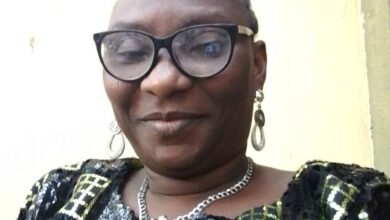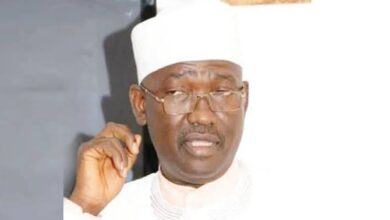Natasha’s Story, Every Woman’s Fight: A Call for Justice and Institutional Integrity

By Wahab Oba
The unfolding events in the Nigerian Senate surrounding the allegations raised by Senator Natasha Akpoti have once again spotlighted the plight of women in politics and public service. The accusation of sexual harassment leveled against the Senate President is not just a personal matter—it is a national emergency that demands urgent, transparent, and independent investigation. The Senate’s response—dismissing her petition on procedural grounds—sends a troubling message about how institutions in Nigeria handle allegations of sexual misconduct, particularly against women.
Around the world, allegations of sexual harassment within legislative and executive arms of government have been met with decisive actions to ensure accountability. In the United States, several congressmen have resigned or faced ethical investigations following allegations of misconduct. The #MeToo movement exposed systemic abuse across industries, leading to policy changes and legal reforms to protect women from harassment.
Similarly, in the United Kingdom, the Independent Complaints and Grievance Scheme (ICGS) was established to address workplace harassment cases within Parliament. These measures demonstrate that when allegations arise, democratic institutions should prioritize justice over political convenience.
Nigeria, as a democracy, must not act differently. The Senate’s failure to handle this matter with fairness and transparency threatens not only the dignity of women but also the integrity of the institution itself. By dismissing Senator Natasha’s petition on technical grounds rather than addressing the substance of her claims, the Senate signals that allegations of sexual misconduct can be brushed aside to protect its own.
The treatment of Senator Natasha Akpoti has far-reaching consequences beyond the Senate chambers. It reinforces a dangerous precedent that discourages women from speaking out against sexual harassment. In a society where gender-based violence remains rampant, many women already fear retribution, victim-blaming, and institutional neglect. When a sitting female senator—a high-ranking lawmaker—is denied a fair hearing, what hope does the ordinary Nigerian woman have in seeking justice?
This scenario also affects the psyche of the girl child. Young girls are told they can be leaders, that they should speak out against injustice. However, when they witness a respected female senator being dismissed and ridiculed, it creates an atmosphere of fear and silence. It tells the girl child that even in the highest offices of the land, women’s voices can be suppressed, their dignity trampled upon, and their quest for justice denied.
To restore public confidence in the Senate and Nigeria’s commitment to justice, an independent and transparent investigation into Senator Natasha’s allegations is essential. The matter should not be handled solely by the Senate, given the clear conflict of interest. Instead, an independent judicial or legislative panel comprising legal experts, human rights activists, and civil society representatives should be established to ensure a fair hearing.
Failure to act will not only damage the Senate’s credibility but also reinforces Nigeria’s troubling history of institutionalized gender injustice. If the Senate truly values its integrity, it must ensure that justice is done and seen to be done.
Nigeria stands at a defining moment. Will we be a nation that upholds the dignity of women and girls, or will we allow power and politics to silence them? The handling of Senator Natasha’s case is not just about one woman—it is about the collective dignity of every Nigerian woman and the future of every girl child. Justice delayed is justice denied, and the Senate must rise to the occasion by ensuring justice is served—not just for its president – but for Senator Natasha as well. Only through fairness and transparency can the dignity and integrity of the hallowed chamber be truly restored.
Wahab Oba writes from Ilorin, Kwara State.





